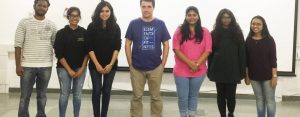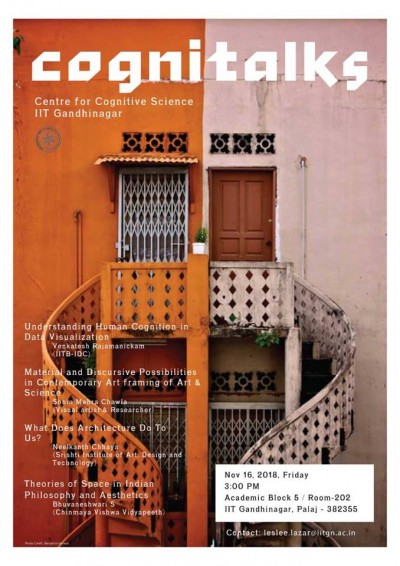
The Winter School was held from January 22- January 28, 2018 at Centre for Cognitive Science, IIT Gandhinagar and was delivered by Prof Jorge Louçã. The sessions encapsulated an implementation of diverse of techniques for monitoring public opinion, allowing to analyze the evolution of narratives (chains of concepts and arguments) being propagated in society was very well explored. New quantitative method for discourse analysis adapted for large textual corpus was presented. The method based on network theory, machine learning, natural language processing, and mathematical modeling of multi-level complex systems was employed to understand BREXIT, Immigration Problems, and Cultural Diversity In India. Comprehensive and meaningful discussions and interactions were the primary focus of the analysis of these results.
About Prof Jorge Louçã
Jorge Louçã obtained in 2000 a PhD in informatics from the Université Paris Dauphine, Paris, France and the Faculty of Sciences of the University of Lisbon, Portugal. He is, since 2000, professor at the ISCTE-IUL Lisbon University Institute, where he teaches Programming Languages and Complex Systems Science. He is the scientific coordinator of the Master and Doctoral Programmes in Complexity Sciences, joint academic programs from the ISCTE-IUL and the University of Lisbon. He has been at the laboratory LAMSADE – Laboratoire d’Analyse et Modélisation de Systèmes pour l’Aide à la Décision, Université Paris Dauphine, from October 1995 to Mars 1999, and LabMAg – Laboratory of Agent Modelling, University of Lisbon from Mars 1999 to September 2011. He presently develops his research at ISTAR – Information Sciences and Technologies and Architecture Research Center, at ISCTE-IUL. He participated in several European research projects. Jorge Louçã is member of the council of the Complex Systems Society (CSS), and since 2015 Vice-President of the Unesco UniTwin Complex Systems Digital Campus. He is the coordinator of The Observatorium research group, aiming to real-time monitoring of multi-level network structures for the study of knowledge generation and opinion dynamics on the Internet.


